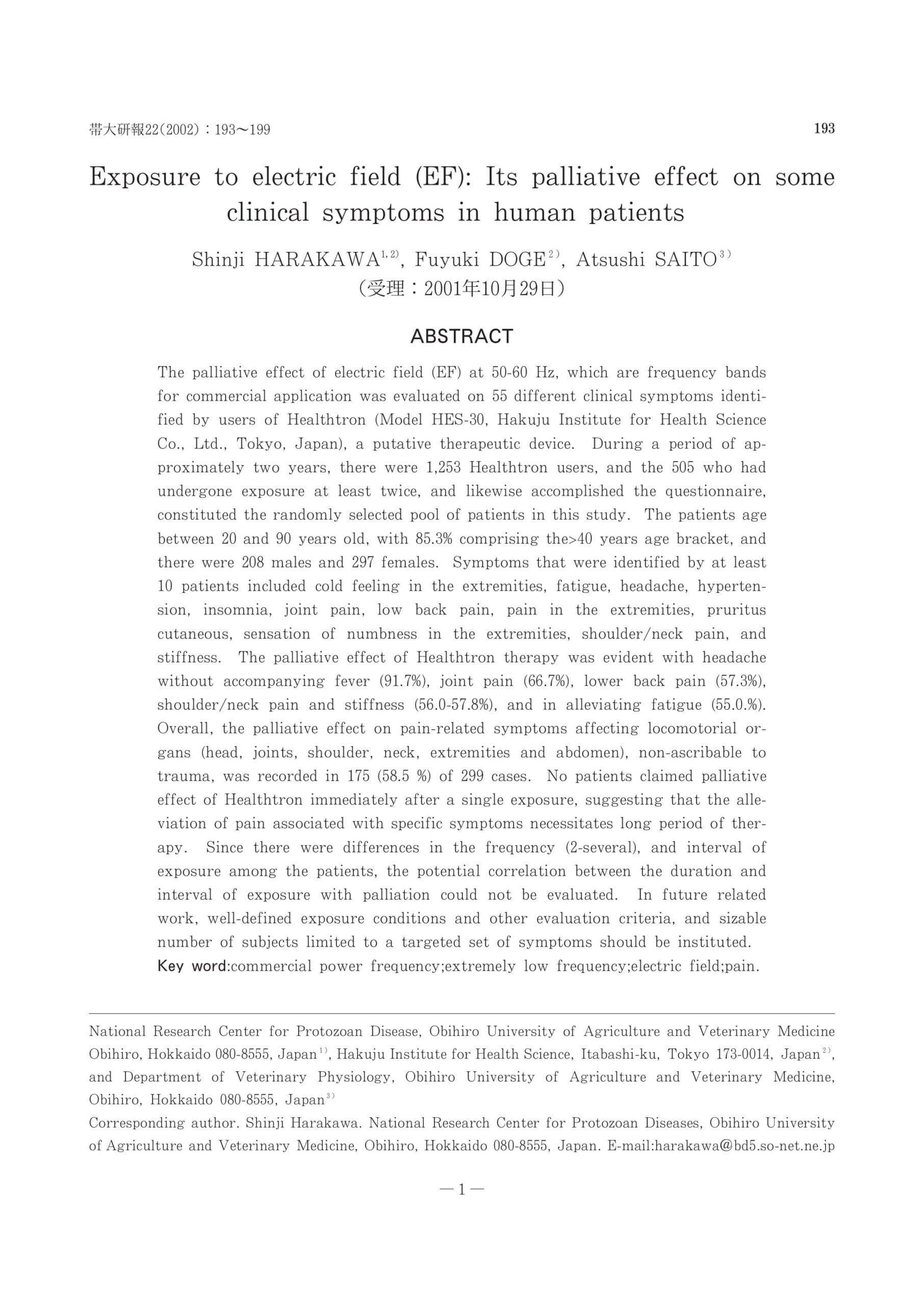
The palliative effect of electric field (EF) at 50-60 Hz, which are frequency bands for commercial application was evaluated on 55 different clinical symptoms identified by users of Healthtron (Model HES-30, Hakuju Institute for Health Science Co., Ltd., Tokyo, Japan), a putative therapeutic device
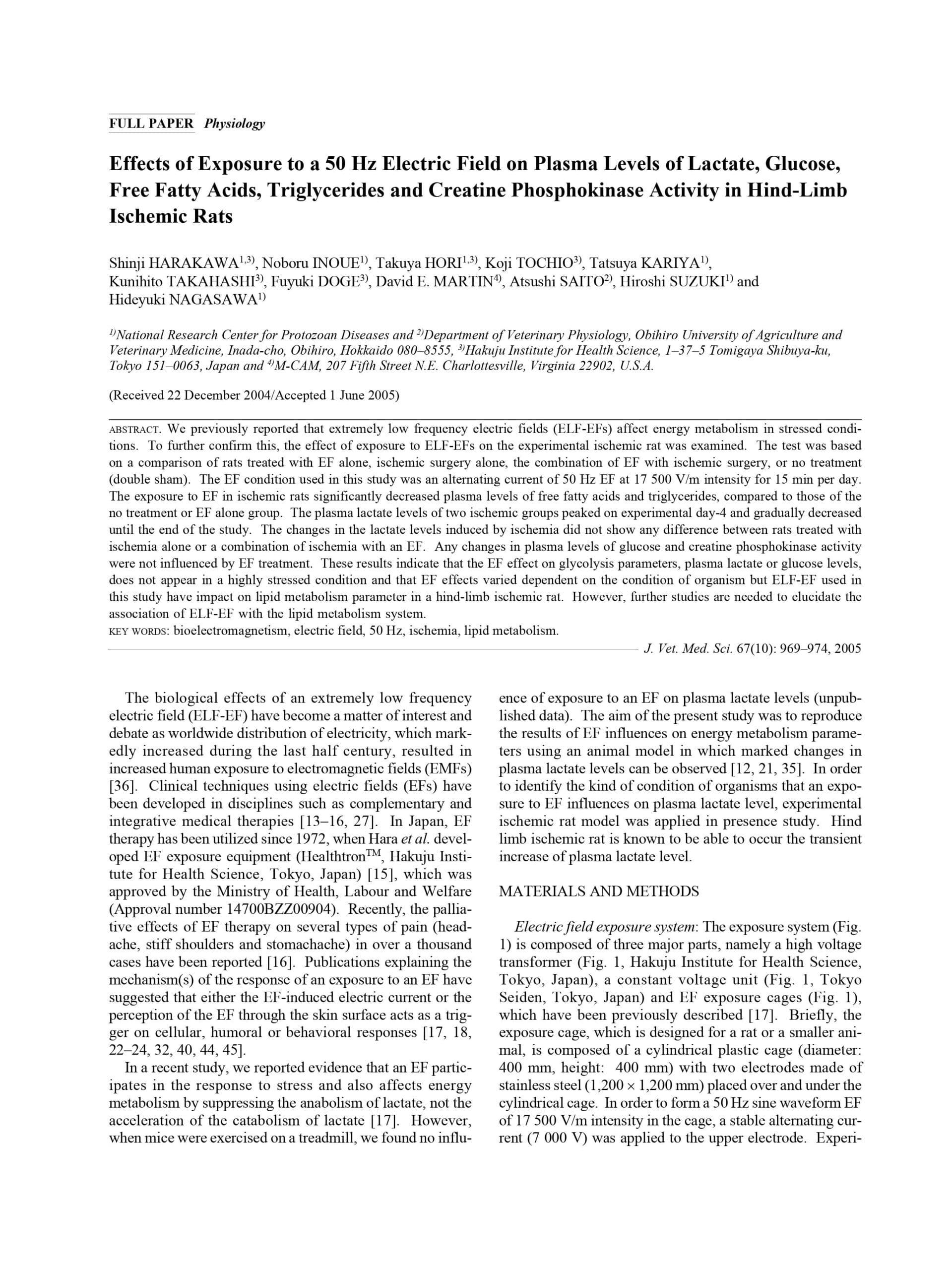
ABSTRACT. We previously reported that extremely low frequency electric fields (ELF-EFs) affect energy metabolism in stressed conditions.
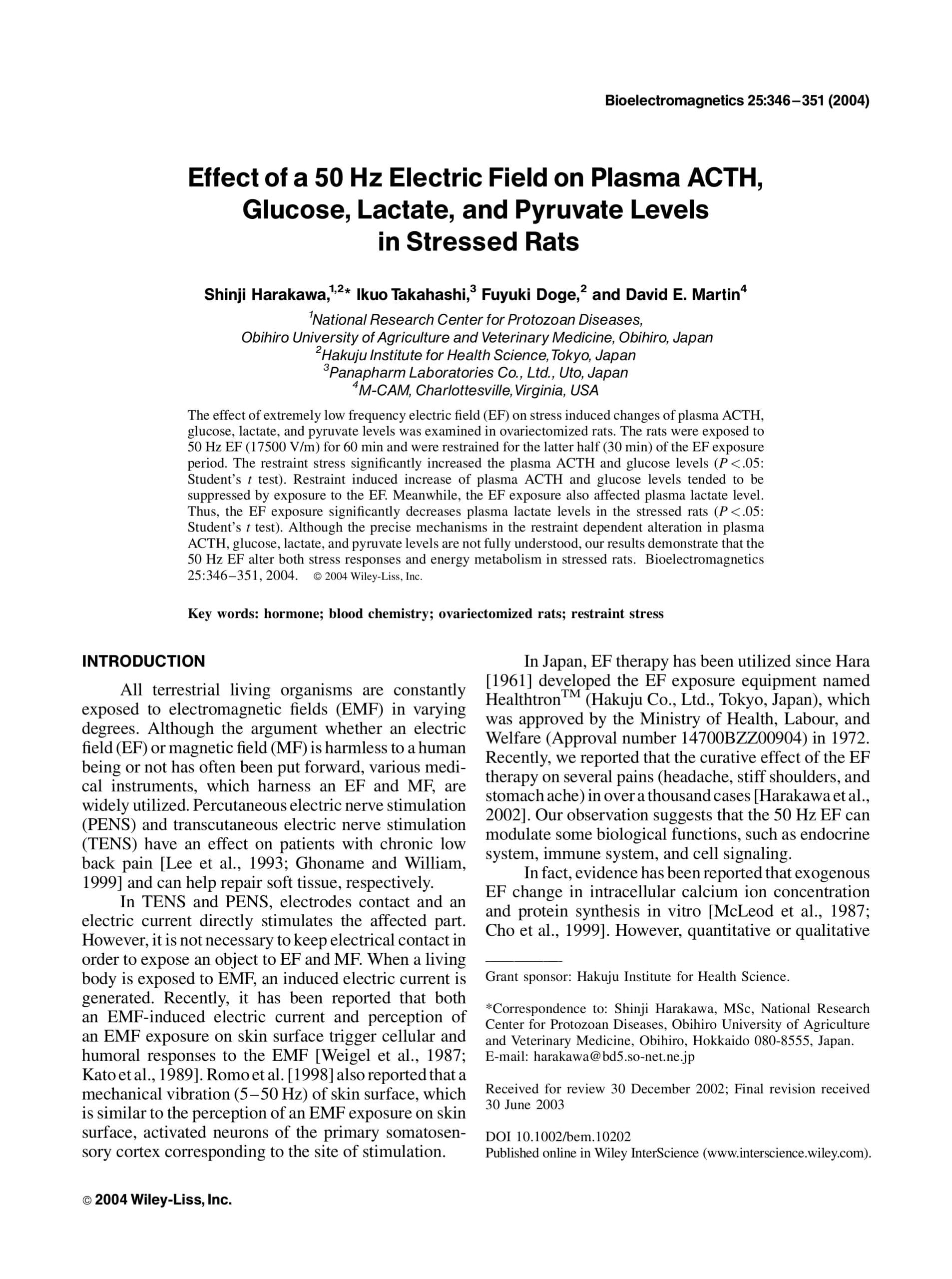
The effect of extremely low frequency electric field (EF) on stress induced changes of plasma ACTH, glucose, lactate, and pyruvate levels was examined in ovariectomized rats.
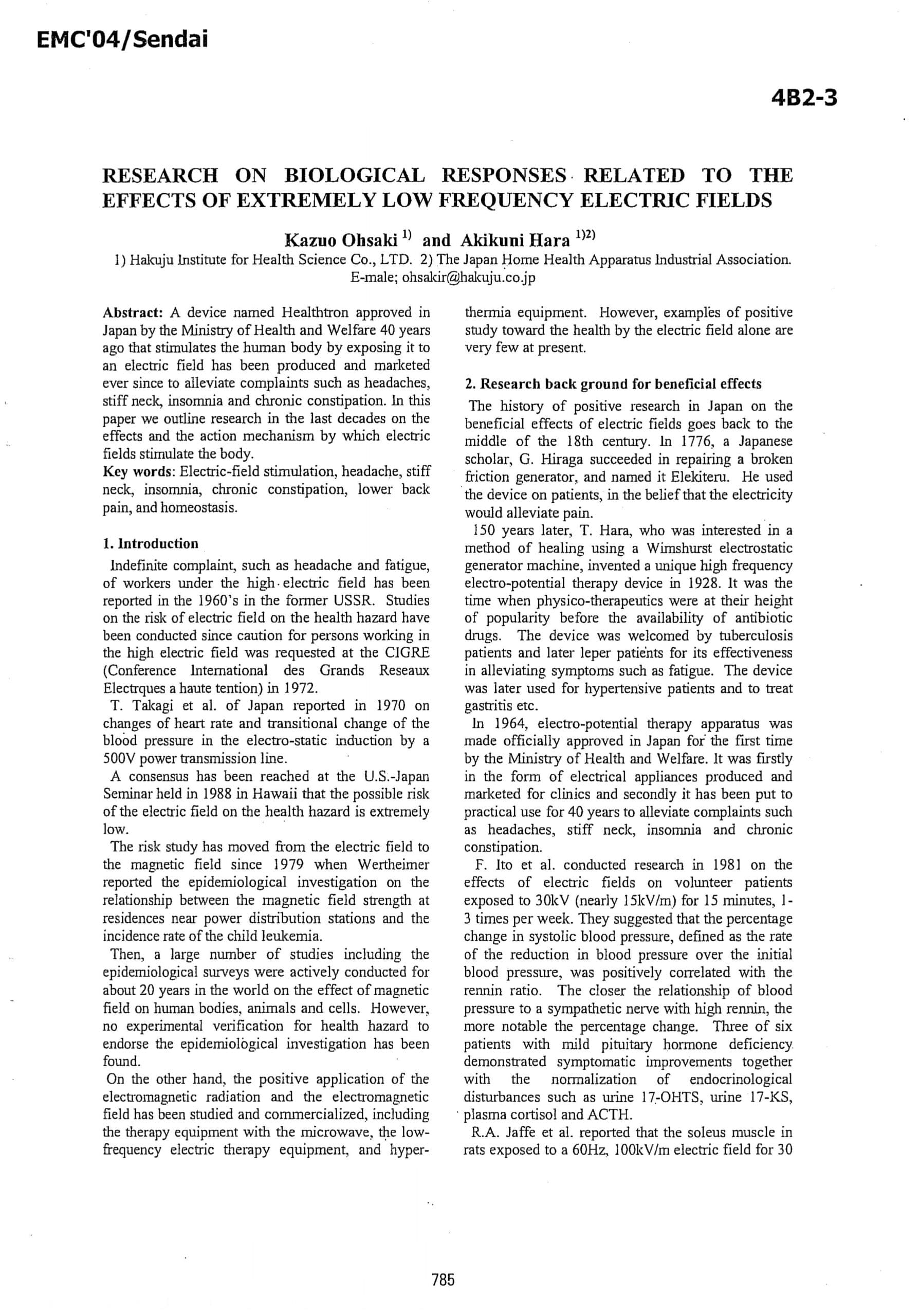
Abstract: A device named Healthtron approved in Japan by the Ministry of Health and Welfare 40 years ago that stimulates the human body by exposing it to an electric field has been produced and marketed ever since to alleviate complaints such as headaches, stiff neck, insomnia and chronic constipation.
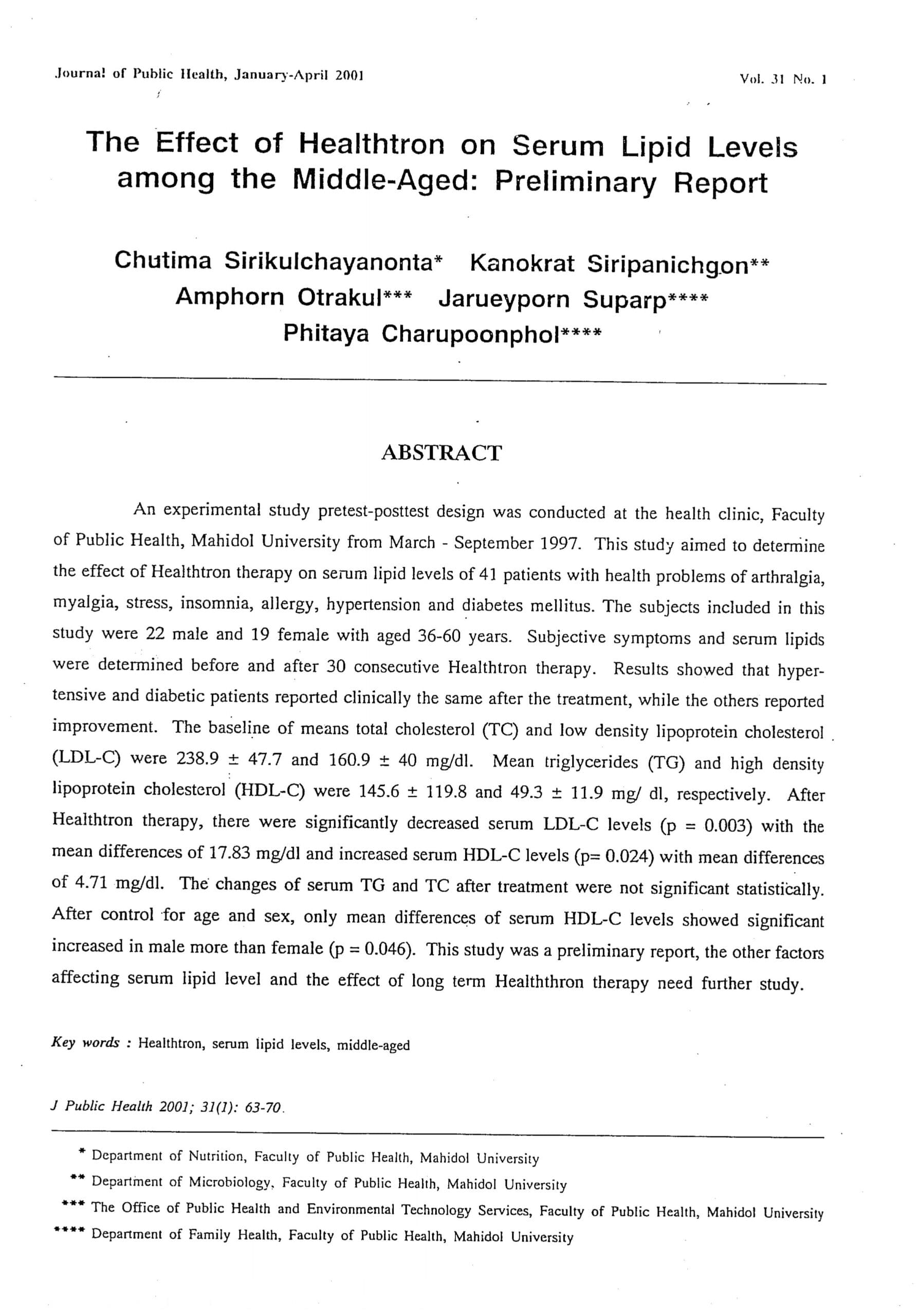
An experimental study pretest-posttest design was conducted at the health clinic, Faculty of Public Health, Mahidol University from March – September 1997.
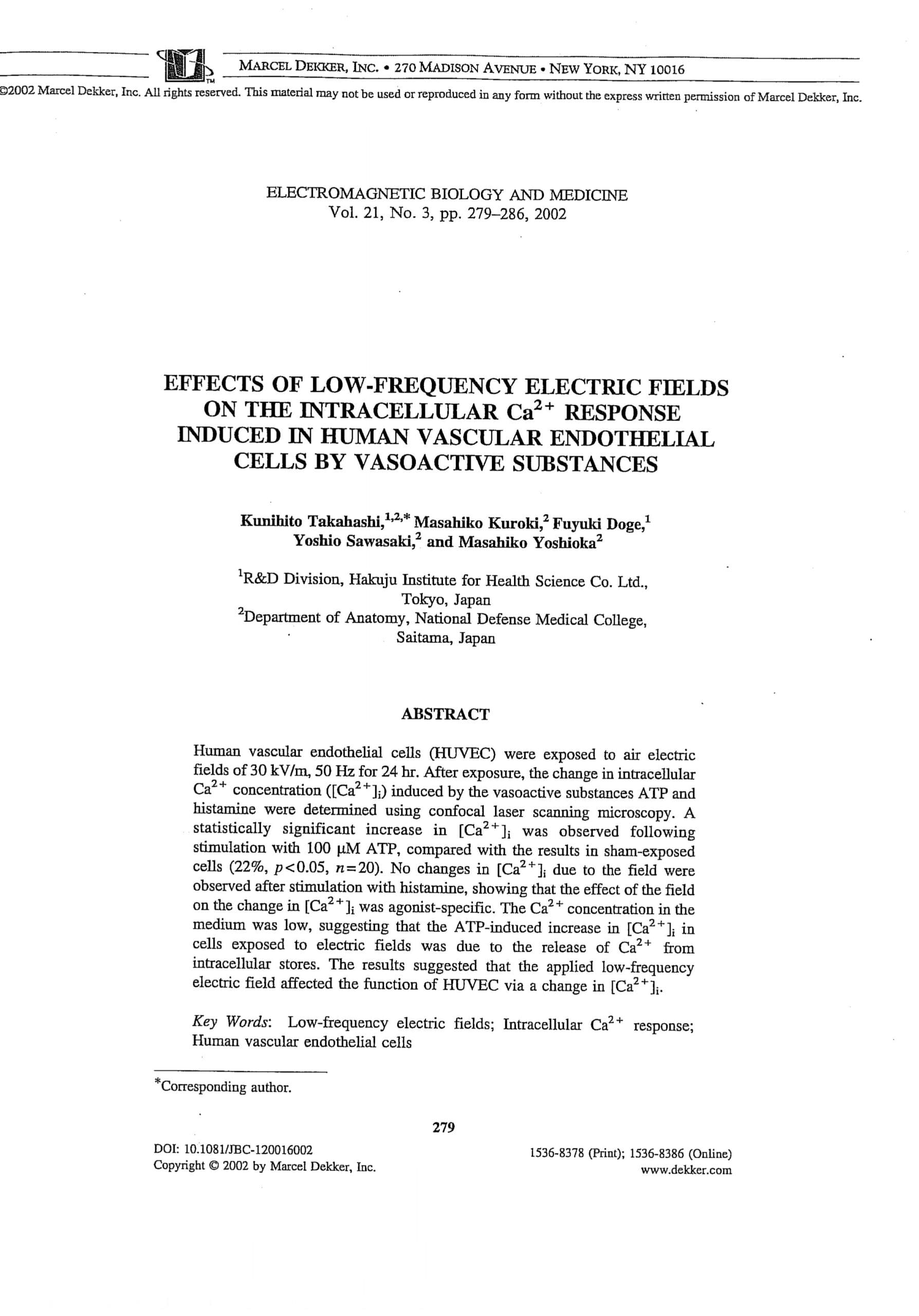
Human vascular endothelial cells (HUVEC) were exposed to air electric fields of 30 kV/m, 50 Hz for 24 hr. After exposure, the change in intracellular Ca2+ concentration ([Ca2+];) induced by the vasoactive substances ATP and histamine were determined using confocal laser scanning microscopy.
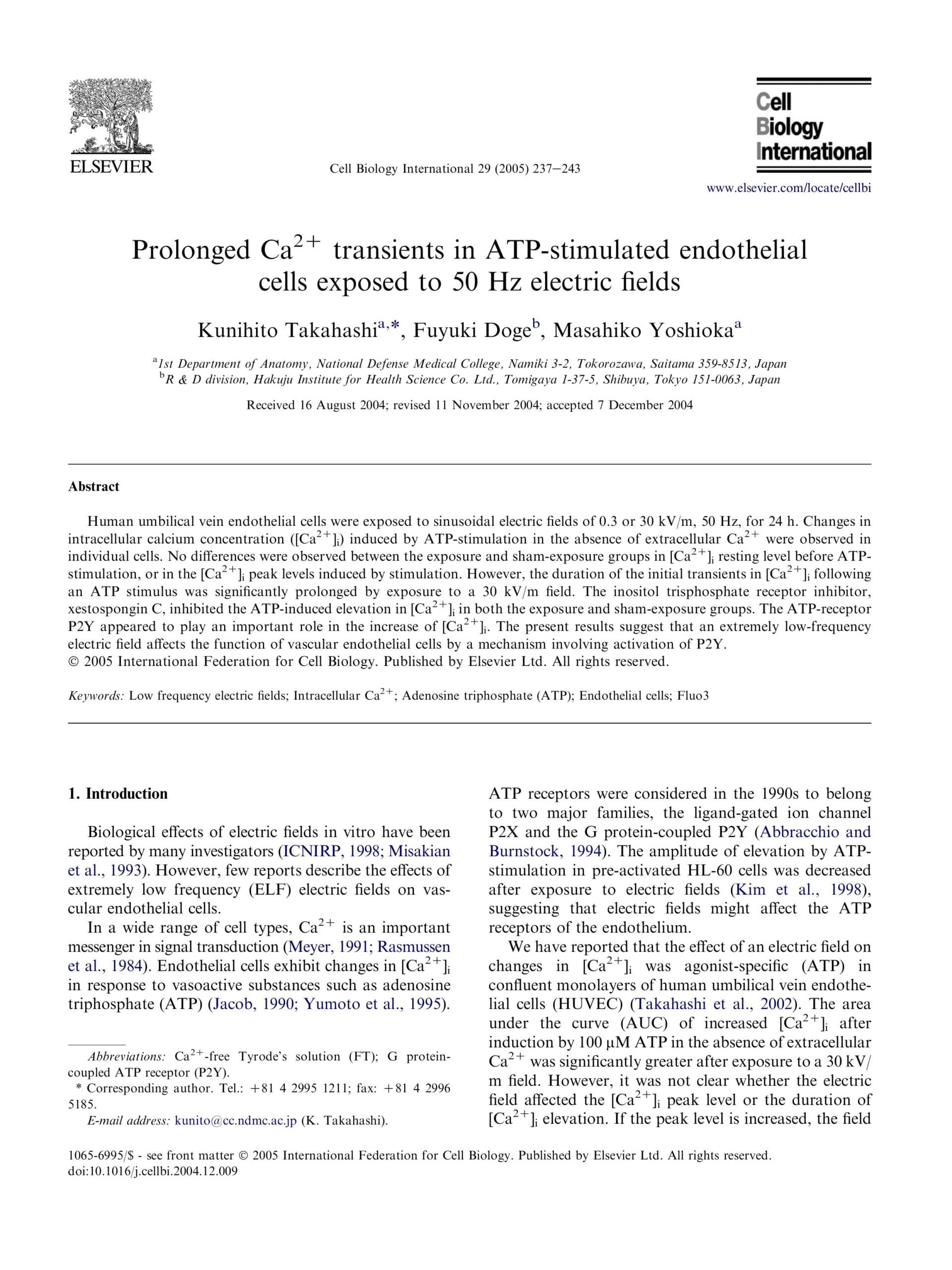
Human umbilical vein endothelial cells were exposed to sinusoidal electric fields of 0.3 or 30 kV/m, 50 Hz, for 24 h. Changes in intracellular calcium concentration ([Ca2+]) induced by ATP-stimulation in the absence of extracellular Ca2+ were observed in individual cells.
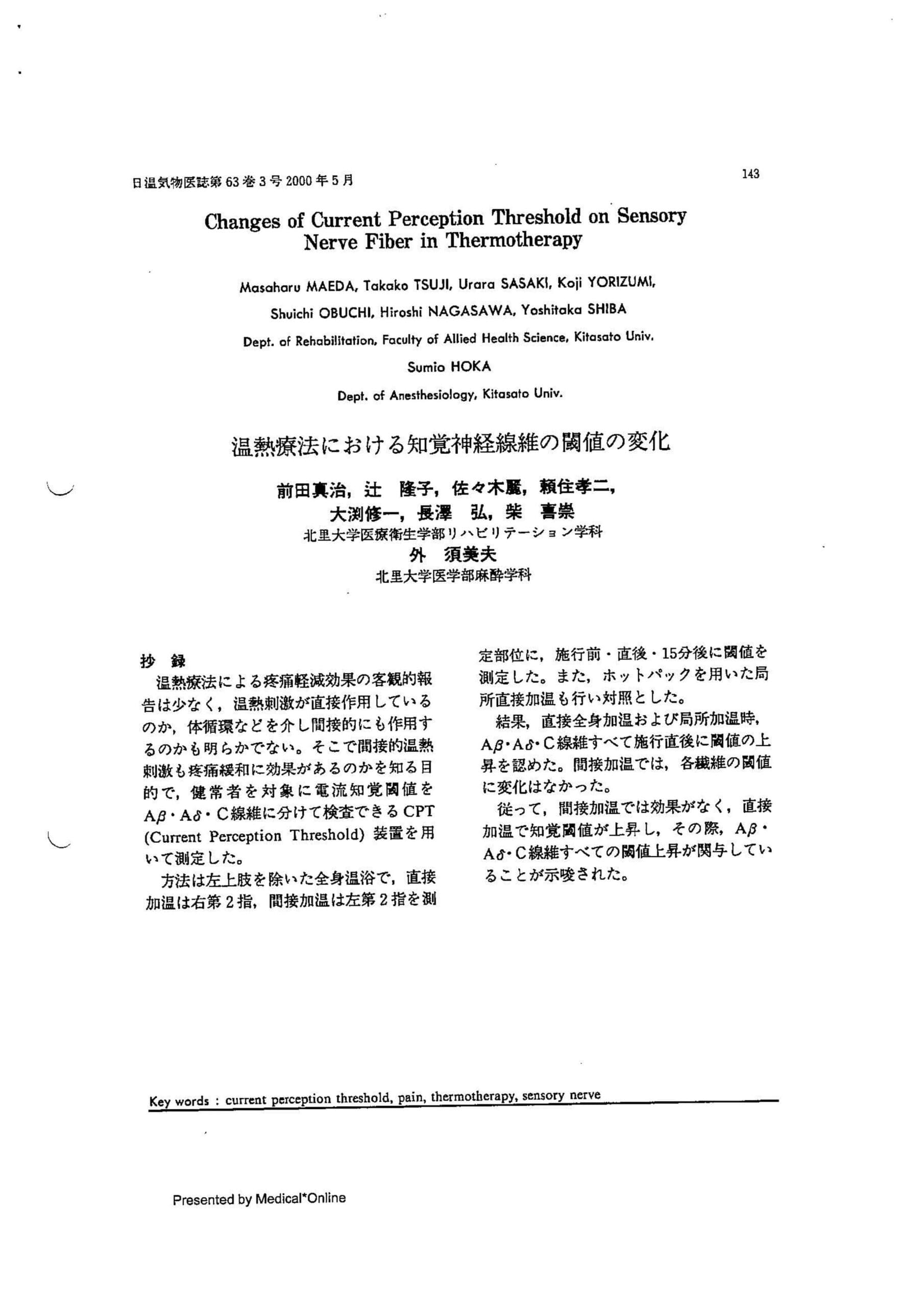
There is less objective information of pain reduction effect by thermotherapy, it is neither clear as to whether thermal stimulation acts directly nor acts indirectly via general circulation.
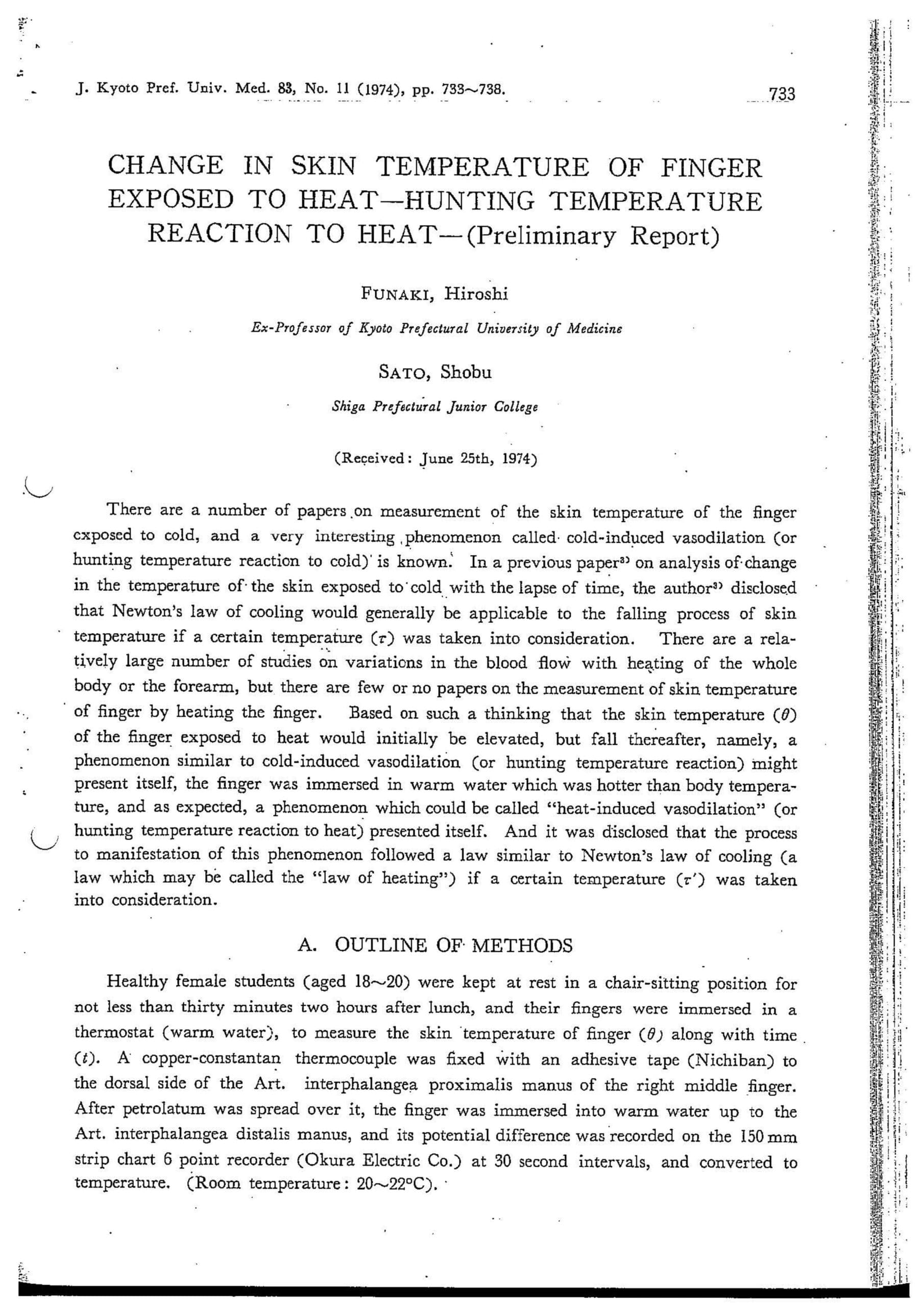
There are a number of papers on measurement of the skin temperature of the finger exposed to cold, and a very interesting phenomenon called cold-induced vasodilation (or hunting temperature reaction to cold) is known.
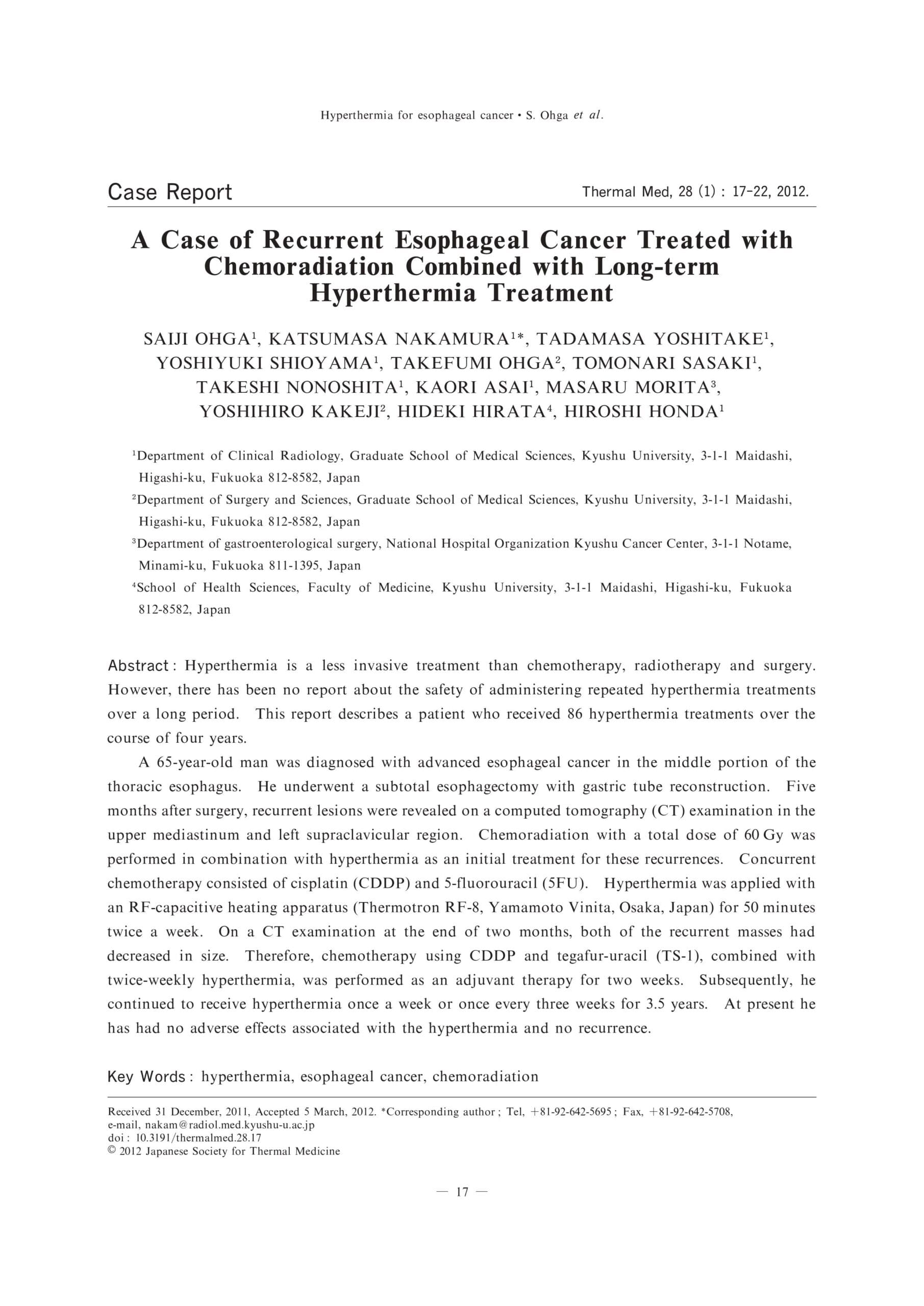
Hyperthermia is a less invasive treatment than chemotherapy, radiotherapy and surgery. However, there has been no report about the safety of administering repeated hyperthermia treatments over a long period.